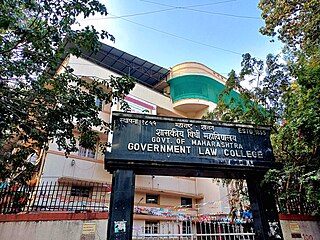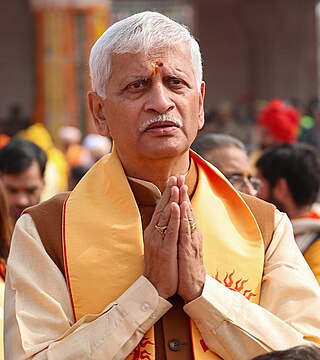
Sir Basil Scott (1859 - 1926) was the Chief Justice of the Bombay High Court.

Sir Basil Scott (1859 - 1926) was the Chief Justice of the Bombay High Court.
Sir Basil Scott was the son of Henry Scott educated at Balliol College, Oxford. He passed B.A. in 1882 and M.A. in 1886. He was called to Bar Inner Temple and came out as a barrister to practice in the Bombay High Court in 1884. [1]

Scott's uncle Basil Lang, was the Advocate General and leading in practitioner of the Bombay High Court. Scott became acting Advocate-General in 1899 and was also appointed permanent Advocate-General of Bombay. In 1906 he was elevated as Puisne Judge and after retirement of Sir Lawrence Hugh Jenkins, he was appointed to the post of Chief Justice in 1908. It is known that some of his decisions were reversed by the Privy Council and he had to some extent, the prevailing prejudices of the Anglo-Indians of his time [2] Scott was the member of the Rowlatt Commission [3] and also the head of Special Tribunal under the Special Tribunal Act in 1910 to deal with the case against Vinayak Damodar Savarkar. [4]

The High Court of Australia is the apex court of the Australian legal system. It exercises original and appellate jurisdiction on matters specified in the Constitution of Australia and supplementary legislation.

Vinayak Damodar Savarkar, Marathi pronunciation: [ʋinaːjək saːʋəɾkəɾ]; 28 May 1883 – 26 February 1966) was an Indian politician, activist and writer. Savarkar developed the Hindu nationalist political ideology of Hindutva while confined at Ratnagiri in 1922. He was a leading figure in the Hindu Mahasabha. The prefix "Veer" has been applied to his name by his followers.

The High Court of Bombay is the high court of the states of Maharashtra and Goa in India, and the union territory of Dadra and Nagar Haveli and Daman and Diu. It is seated primarily at Mumbai, and is one of the oldest high courts in India. The High Court has circuit benches at Nagpur and Aurangabad in Maharashtra and Panaji, the capital of Goa.

The Government Law College, Mumbai,, India, founded in 1855, is the oldest law school in Asia. The college, affiliated to the University of Mumbai, is run by the Government of Maharashtra.

Mohammad Hidayatullah OBE was the 11th Chief Justice of India serving from 25 February 1968 to 16 December 1970, and the sixth vice president of India, serving from 31 August 1979 to 30 August 1984. He had also served as the acting president of India from 20 July 1969 to 24 August 1969 and from 6 October 1982 to 31 October 1982 and from 25 July 1983 to 25 July 1983 and from 25 July 1984 to 25 July 1984. He is regarded as an eminent jurist, scholar, educationist, author and linguist.
The Sedition Committee, usually known as the Rowlatt Committee, was a committee of inquiry appointed in 1917 by the British Indian Government with Sidney Rowlatt, an Anglo-Egyptian judge, as its president, charged with evaluating the threat posed to British rule by the revolutionary movement and determining the legal changes necessary to deal with it.

Ashok H. Desai was an Indian lawyer, practising in the Supreme Court of India. He held office as the Attorney General of India from 9 July 1996 to 6 May 1998. Earlier, he was the Solicitor General of India from 18 December 1989 to 2 December 1990. He was awarded the Padma Bhushan award and the Law Luminary Award in 2001. He was given an honorary doctorate in "recognition of his contribution to the field of law and jurisprudence" by the North Orissa University in September 2009.

Madhukar Hiralal "M. H." Kania was an Indian judge who became the 23rd Chief Justice of India, serving from 13 December 1991 until his retirement on 17 November 1992. He was born in Bombay. His uncle was Sir Harilal Jekisundas Kania, the first Chief Justice of India.

Sabyasachi Mukharji was an Indian jurist, who was the twentieth Chief Justice of India. He also previously served as the acting Chief Justice of the Calcutta High Court.
The Kapur Commission was a commission of inquiry by the Government of India, into the murder conspiracy of Mahatma Gandhi.

Sarosh Homi Kapadia was the 38th Chief Justice of India. He was the first chief justice born in independent India.
Sir John Edward Power Wallis was a British lawyer who served as the Advocate-General of Madras from 1900 to 1906, and Chief Justice of the Madras High Court from 1914 to 1921.
Ranjana Prakash Desai is a former judge of the Supreme Court of India and the head of the Delimitation Commission of India. She was previously a public prosecutor for the State of Maharashtra, and served as a judge on the Bombay High Court before her appointment from the Supreme Court. Following her retirement from the Supreme Court, Desai was the chairperson of the Indian Appellate Tribunal for Electricity.
Hosbet Suresh was a judge of the Bombay High Court who led a number of commissions that investigated violations of human rights.
V. S. Malimath was an Indian jurist, who served as Chief Justice of the Kerala High Court and Karnataka High Court. He also was the Chairman of the Central Administrative Tribunal, and then member of the National Human Rights Commission of India. He headed the Committee on Reform of Criminal Justice System.
Justice Abhay Mahadeo Thipsay was a Judge at the Bombay High Court and the Allahabad High Court. He started his career as an advocate in 1979. Was appointed as Metropolitan Magistrate in the Judicial Service of the State of Maharashtra in 1987. From 2011 to 2016 he was a Judge at the High Court of Bombay where he handled civil suits and criminal trials, several of which were complex, lengthy and sensitive. His cases which attracted too much media attention were the trial of Tantrik Chandra Swamy in 1994-95, convicting Anna Hazare in the year 1999; the Best Bakery case and the Sohrabuddin encounter case. He is an internationally rated Chess Player. His brother Praveen Thipsay is also a well-known chess player.

Uday Umesh Lalit is an Indian lawyer and former Supreme Court Judge, who served as the 49th Chief Justice of India. Previously, he has served as a judge of Supreme Court of India. Prior to his elevation as a judge, he practised as a senior counsel at the Supreme Court. Justice Lalit is one of the six senior counsels who have been directly elevated to the Supreme Court. He is currently ‘Distinguished Visiting Professor’ at Ashank Desai Centre for Policy Studies, Indian Institute of Technology, Bombay and Distinguished Visiting Professor at West Bengal National University of Juridical Sciences.
Justice Gita Mittal is a retired Indian judge. She is the former Chief Justice of the Jammu and Kashmir High Court and the first woman judge to serve in that capacity. She has also served as the Acting Chief Justice of Delhi High Court while she was serving as a Judge of the Delhi High Court.
SirNorman Cranstoun Macleod (1866–1945) was the Chief Justice of the Bombay High Court.

Mukeshkumar Rasikbhai Shah is a former judge of the Supreme Court of India, former chief justice of the Patna High Court and a former judge of Gujarat High Court.